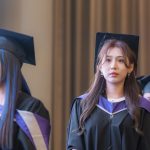Master of Science International Events, Leisure and Tourism Management
Duration:
AWARDED BY:
- London Met Overview
- Programme Overview
- Programme Details
- Entry Requirements
- Assessment and Grading Criteria
Brand statement
London Metropolitan University’s mission is to transform lives through the power of education – and it does that by welcoming students from all kinds of backgrounds and supporting them to achieve success. Each and every one of them belongs there and uniquely contributes to the university and the city around them. They are The Real London. This is The Real London.
Overview:
Based in one of the world’s most exciting capital cities, London Metropolitan University is home to an inclusive community of inspiring and determined learners, teachers and innovative thinkers.
The University’s mission is to transform lives through the power of education – and it does that by welcoming students from all kinds of backgrounds and supporting them to achieve success. Each and every one of them belongs there and uniquely contributes to the university and the city around them. They are The Real London. This is The Real London.
London Met’s campuses are based in central London and offer students the excitement of the capital at their fingertips. London is an exciting international city with something for everyone. Whatever their course, students find inspiration in London’s wealth of culture, industries, innovation and heritage.
High-quality teaching is at the heart of the experience offered to students at London Met and the university is ranked ninth in the UK for teaching quality by The Times and Sunday Times Good University Guide 2024, as well as 10th for student experience.
Working with partners
London Met works closely with a number of collaborative partners both in the UK and overseas to deliver courses that lead to a university award. These relationships give the University the opportunity to enhance its academic offering and provide the best possible learning experience to a wider audience.
Working with Stanfort Academy: Franchised Agreement
London Metropolitan University (London Met) authorises and approves Stanfort Academy to deliver and assess part or all of the course. This course is also taught and assessed at London Met’s main campus in London, United Kingdom. London Met holds direct responsibility for quality assurance, curriculum content, and the teaching, learning and assessment strategy.
Objective
(Awarded by London Metropolitan University, UK) The MSc International Events, Leisure and Tourism Management programme, offered by the Guildhall School of Business and Law in London and delivered through Stanfort Academy, provides students and professionals with advanced knowledge and leadership skills tailored for the dynamic Events, Leisure, Tourism, and broader Creative Industries sectors. Designed for graduates and experienced practitioners alike, the course combines rigorous academic study with practical, industry-relevant learning through seven core modules and a substantial dissertation project. It emphasizes a global and ethical perspective, incorporating themes of sustainability, diversity, corporate social responsibility, and innovation. The programme fosters critical thinking, creativity, and problem-solving skills through experiential learning methods such as case studies, consultancy projects, and collaborative activities, supported by digital platforms like Canvas LMS. Students develop essential transferable skills including communication, leadership, and self-reflection, preparing them to make confident decisions and act as socially responsible professionals in complex, multicultural environments. Graduates emerge with a deep understanding of sector-specific challenges and strategies, equipped to advance their careers and contribute effectively to the evolving global Creative.Module
- Fundamentals of CSR and Sustainability (20 credits) This programme equips future managers with essential knowledge and skills in Corporate Social Responsibility (CSR), enabling them to address ethical, social, and environmental challenges faced by businesses today. Students will learn to evaluate CSR policies, analyse corporate reports, understand the relationship between business and society, and develop sustainable business strategies aligned with global standards like the UN Sustainable Development Goals. Graduates will be prepared to lead responsibly and drive positive change in a complex, global business environment.
- Marketing Management for Events, Leisure and Tourism (20 credits) This module provides a critical exploration of marketing management within the Events, Leisure, Tourism, and Creative Industries, blending essential theory with practical application. Students will engage with contemporary marketing frameworks, concepts, and strategies relevant to both national and international contexts, learning to analyse and solve real-world marketing challenges. Through academic research and industry examples, the module develops students’ ability to evaluate and apply marketing management tools, reflect on current practices, and make informed recommendations. By fostering critical awareness and analytical skills, the module prepares students for leadership roles in marketing management, equipping them to navigate complex business environments and contribute effectively to organisational success.
- Project and Quality Management for Events, Leisure and Tourism (20 credits) This module focuses on the key principles of project and quality management within the Events, Leisure, Tourism, and Creative Industries sectors. It equips students with both theoretical knowledge and practical skills to effectively manage projects and ensure quality standards in diverse organisational settings. Through critical analysis of current practices and academic theories, students learn to navigate challenges, apply relevant tools, and make strategic decisions that improve project outcomes and maintain high-quality performance in a global context.
- Fundraising and PR for Events, Leisure and Tourism (20 credits) This module provides a critical overview of key issues in fundraising and public relations (PR) within the Events, Leisure, Tourism, and Creative Industries, both in Singapore and globally. Students will develop a broad and informed understanding of contemporary fundraising strategies and PR practices, underpinned by current academic and professional research. The module equips learners with theoretical and practical tools to analyse, evaluate, and apply fundraising and PR concepts, enabling them to address complex challenges and make informed decisions in diverse organisational settings. Through this approach, students gain the skills needed to navigate the evolving landscape of fundraising and PR, and to understand their impact on decision-making within the creative sectors.
- Financial Decision Making for Events, Leisure and Tourism (20 credits) This module introduces the principles of financial decision making and financial analysis within the Events, Leisure, Tourism, Culture, and Creative Industries sectors. Students will learn how to interpret financial statements, apply fundamental accounting and finance concepts, and use management accounting techniques to support business decisions. The module also covers sources of finance, the development of financing strategies, and the links between finance, corporate governance, and strategic decision making. Through real-world examples and case studies, students gain practical skills in analysing business performance and communicating financial information, preparing them to make informed financial decisions in diverse creative industry contexts.
- Operations and Technology Management (20 credits) This module provides a comprehensive understanding of operations and technology management, emphasizing how businesses create value through their operations and technology within interconnected value networks. Students will explore key concepts such as strategy, process design, supply chain management, and improvement techniques like lean, alongside the critical role of technology—including AI and robotics—in modern operations. Through analytical tools like process mapping and real-world case studies, the module prepares students to assess and implement effective operational strategies, evaluate digital business concepts, and make informed decisions about performance trade-offs. Graduates will be equipped to leverage technology and operations management to drive value creation and competitive advantage across diverse sectors.
- Dissertation (60 credits) This module enables students to undertake an independent research project related to their course, culminating in a 10,000-word dissertation. Through critical investigation of a chosen topic, students develop and apply appropriate research methods, analyse and synthesise theory, policy, and practice, and make evidence-based recommendations or contributions to existing knowledge. Guided by a supervisor, students demonstrate self-direction, originality, and critical reflection, gaining valuable experience in designing and conducting research that is relevant to their academic and professional interests.
Entry requirements
| Minimum Age | 20 Years | |
|---|---|---|
| Academic qualification | 1.A minimum of a 2:2 honours degree in a relevant subject area or business-related subjects from the UK or recognised international university or another equivalent international qualification; (OR) 2.Post-Graduate Diploma in related or business-related subjects; (OR) 3.Non-standard applicants with no formal qualifications, with a minimum of 5 years of appropriate working experience, including 2 years of working experience in related field, where the applicant can demonstrate clear potential to operate at postgraduate level and benefit from the opportunity will be assessed on a case-by-case basis Applicants with any other non-standard qualifications may apply but will be assessed on a case-by-case basis by the London Metropolitan University | |
| Mathematics Requirement | A minimum Pass grade in year 12 or in high school | |
| Language proficiency requirement | Any of the following: a. English Language at GCE O-level at grade C or above; (OR) b. IELTS score of 6.0 with no component lower than 5.5 (or equivalent); (OR) c. Pearson Test of English Academic with a minimum score of 59 in each element (only in-person Pearson Test of English (PTE) is accepted, not the online version); (OR) d. Cambridge Certification in Advanced English (CAE) with Grade C or above; (OR) e. Completed Stanfort Academy Certificate in English for Foreign Students (Advanced Level); (OR) f. Obtained at least 80% for Stanfort Academy English Proficiency Test | |
Assessment:
London Metropolitan University (London Met) authorises and approves Stanfort Academy to deliver and assess part or all of the course. This course is also taught and assessed at London Met's main campus in London, United Kingdom. London Met holds direct responsibility for quality assurance, curriculum content, and the teaching, learning and assessment strategy.- Group Assignment, Individual Report, Business Research Report, Individual blog, Group presentation, Individual investigation report, Portfolio
Marking and grades:
Each component of assessed work is assigned a percentage mark with a pass/fail threshold at 50%. Overall average mark obtained for all modules and the dissertation, with classification thresholds for each grade of award as follows:- 70% and above: Distinction
- 60% – 69%: Merit
- 50% – 59%: Pass
- 0% – 49%: Fail



